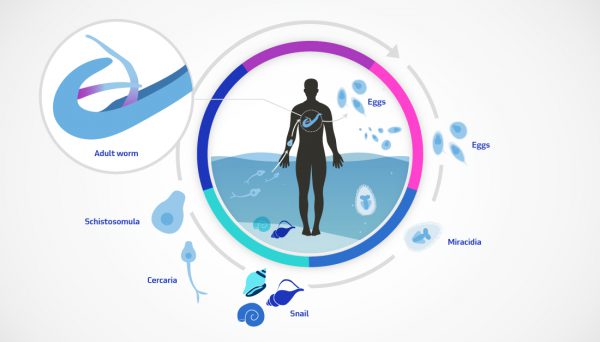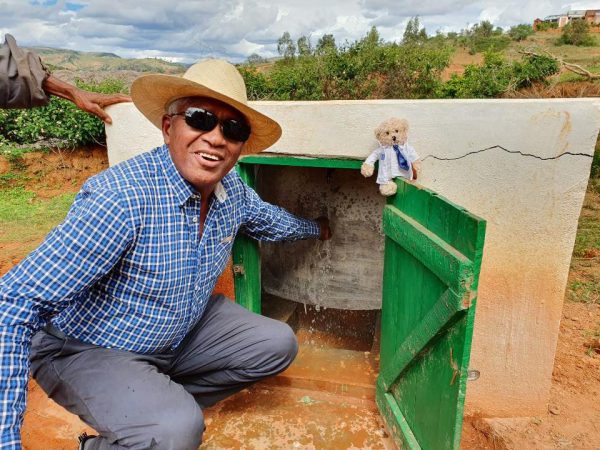Schistosomiasis
A comprehensive approach to Schistosomiasis control
in Burkina Faso and Madagascar
About Schistosomiasis:
Schistosomiasis is a poverty-associated disease caused by parasitic worms. The disease is spread when people come into contact with infested waters during work-related and recreational activities.
It is a major global public health problem with the highest disease burden in sub-Saharan Africa. Schistosomiasis is a significant cause of morbidity for an estimated 200 million people, with an additional 779 million individuals at risk for infection. Of deaths caused by parasites, schistosomiasis ranks second only to malaria, killing more than 200,000 people annually in sub-Saharan Africa alone. The highest disease burden is in school-aged children.

Why a vaccine?
In addition to sustained treatment programs, effectively controlling Schistosomiasis calls for a proven vaccine
Currently, disease control relies primarily on taking the anti-worm drug praziquantel (PZQ) to treat infection. However, the challenge is that PZQ does not completely eliminate the parasite and re-infection after treatment is common, making repeated treatment necessary and mass treatment programs unsustainable.
To slow the spread of disease, there is also the possibility of reducing the number of snail hosts through extermination programs, but this is a challenging, labor-intensive and costly method.
A safe, effective, and widely accessible vaccine to protect against Schistosomiasis would save countless lives and relieve significant social and economic burdens for millions of people who live in affected regions. There are currently a number of Schistosomiasis vaccine candidates in development, but none has been licensed yet.
What is IVI doing?
Treatment, education, and prevention while advancing clinical development of a promising vaccine candidate
IVI’s Schistosomiasis in Madagascar (SOMA) project in collaboration with the University of Antananarivo launched in 2018 with the aim of reducing the intensity and prevalence of Schistosomiasis infection for at-risk populations in the Ambositra District of Madagascar.
Throughout this program, over 100,000 people were treated with PZQ through a mass drug administration campaign, and Water, Sanitation, and Hygiene (WASH) education and training programs were held in schools and at community gatherings. The SOMA project oversaw the construction of two cisterns, twenty new toilets and two shower facilities across primary and secondary schools, public markets and healthcare centers to increase access to sanitation and hygiene practices.
Principal Investigator: Florian Marks
Co-PI: Andrea Haselbeck
This project was completed in December 2020 and was supported by the Yanghyun Foundation.

IVI’s Vaccine Against Schistosomiasis for Africa (VASA) project in collaboration with Cambridge University has three key objectives:
- Understanding the current disease burden in Madagascar and Burkina Faso—two Schistosomiasis-endemic countries—as well as earliest age of exposure to Schistosoma to inform future vaccine roll-out policies
- Understanding the financial burden of Schistosomiasis on local populations with a cost-of-illness study and estimating the cost-effectiveness of a vaccine
- Conducing a Phase I clinical trial to assess the safety and immunogenicity of SchistoShield®, one of the leading Schistosomiasis vaccine candidates, in healthy adults
Learn more about the VASA project here.
Principal Investigator: Florian Marks
Project Lead: Raphael Zellweger
This project is supported by the EU Horizons 2020 Program.

